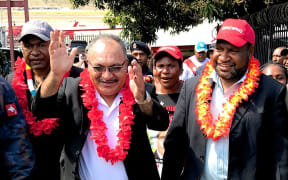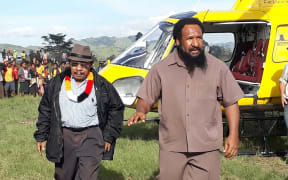The new man in charge of Papua New Guinea's Treasury admits some changes in government direction are necessary to manage an economy under huge strain.
Charles Abel from the ruling People's National Congress party has been promoted to treasurer and deputy prime minister in a new caretaker cabinet of the coalition government which emerged from the recent election.
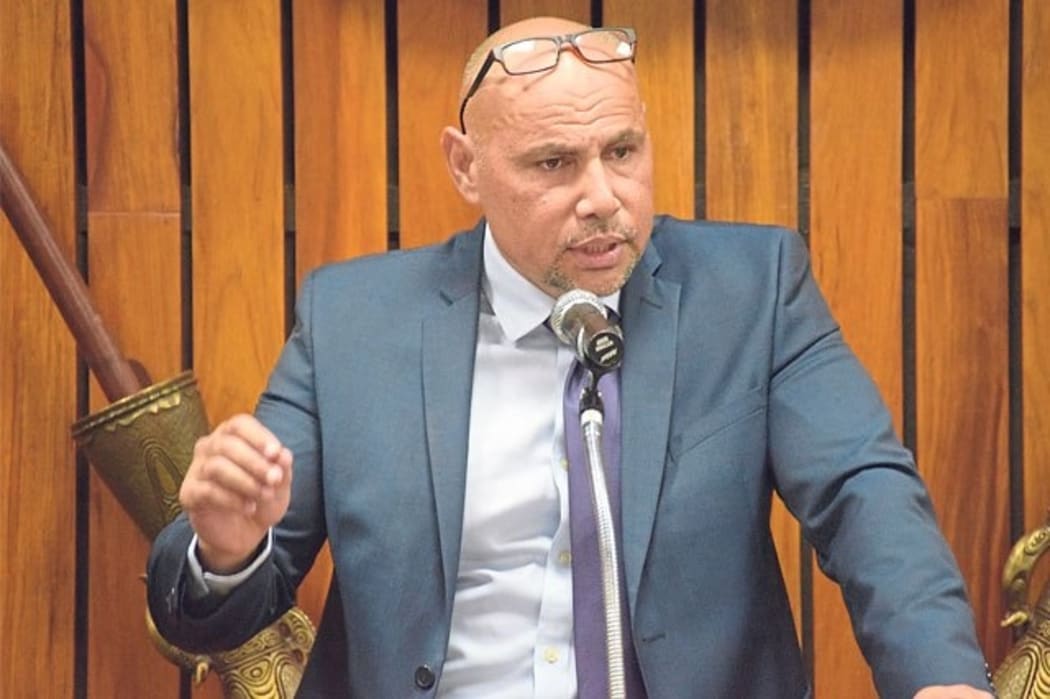
Charles Abel, MP for Alotau in Papua new Guinea. Photo: The National
Having been elected as prime minister again when PNG's tenth parliament sat for the first time two days ago, Peter O'Neill has rewarded Mr Abel for his work in charge of the Ministry of National Planning over recent years.
Seen as one of the most talented MPs in PNG's diverse parliament, the Alotau MP has his work cut out for him in the Treasury role.
Treasury this week released its Mid-year Economic and Fiscal Outlook which revealed a budget blowout of more than a billion kina [$US309 million] amid collapsed revenues and higher than expected expenditure.
On the ground, PNG's grassroots communities are struggling. There are few jobs available. Most hospitals are experiencing drastic shortages of basic supplies. Education is free but schools across the country are barely able to function for lack of resourcing. Teachers, doctors, public servants, police and others hardly ever get paid regularly.
The O'Neill-led government which ruled in the five-year term that finished with last month's election tended to blame PNG's economic woes since 2014 on slumps in global commodity, oil and gas prices, as well as prolonged drought.
The new Treasurer echoed this, but conceded the government had to be realistic about the way it had been conducting itself.
Mr Abel said that as he moved into the Treasury portfolio there would be a review of government processes: looking at revenue streams, fulfilling the budget and the status PNG's deficit. According to him, there were certain things that had to change.
"We've got to realise that there's a limit to borrowing. We've got to realise that we've got to live within our means," he said.
"I think some of our procurement processes, and some of our investments into infrastructure are good, but there needs to be perhaps more emphasis on other aspects of human development and get back to some of the basics: like ensuring there's medicines in our hospitals, ensuring that whilst we provide access to education, it's quality education."
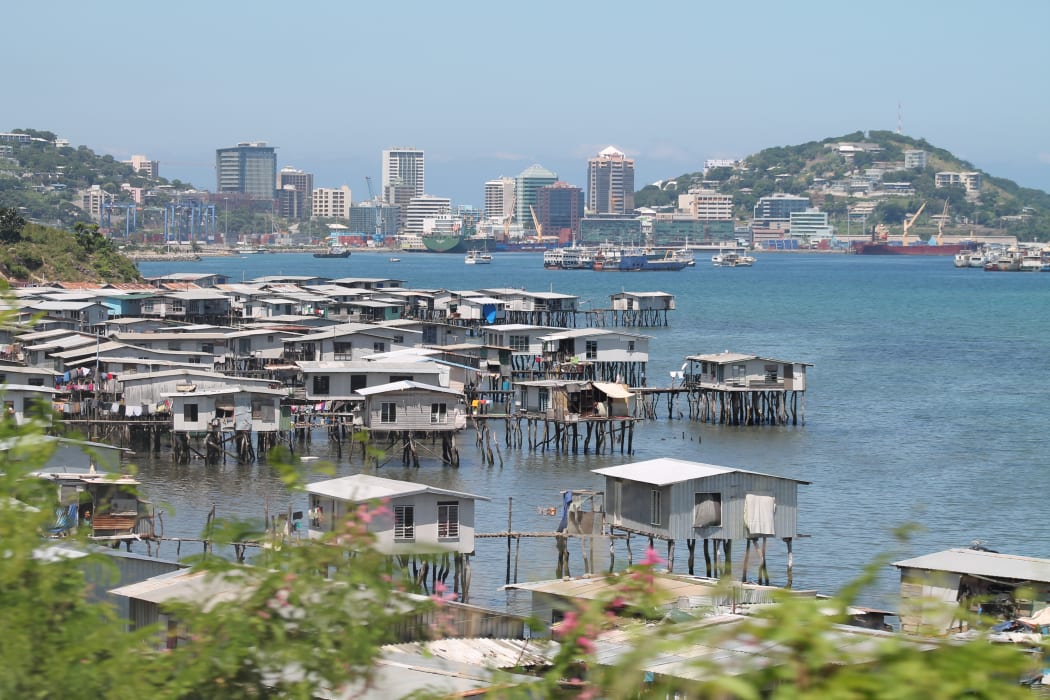
Papua New Guinea's capital, Port Moresby Photo: RNZI / Johnny Blades
Blow-out
Since the start of the year, PNG's public debt has blown out from 21 billion kina [$US6.5 billion] to 25 billion [$US7.7 billion], or 29 percent of GDP to 34.5 percent.
It became more clear that prime minister Peter O'Neill's positive spin about the economy in the past two years was not the full picture when the previous treasurer, Patrick Pruaitch said in April that the economy had "fallen off a cliff".
He blamed the government's spending spree for exacerbating an economic rut where jobs in the formal sector had been plummeting since 2014.
"All Papua New Guineans would be better off today if our government had given more consideration to the quality of its spending than in promoting extravagant projects built at highly inflated costs," said Mr Pruaitch. A short time later he was sacked by Mr O'Neill, and his National Alliance Party, the second biggest party in parliament, is now part of the opposition.
While Mr Pruaitch suggested the trouble that PNG's economy had found itself in was a result of the prime minister's management of the economy, Mr O'Neill said his was a consultative cabinet where decisions were made as a team.
After the acrimony between these two in the just-completed election, Mr Abel's appointment offers a chance for this government to move on afresh. The challenge at hand requires difficult decisions to be made.
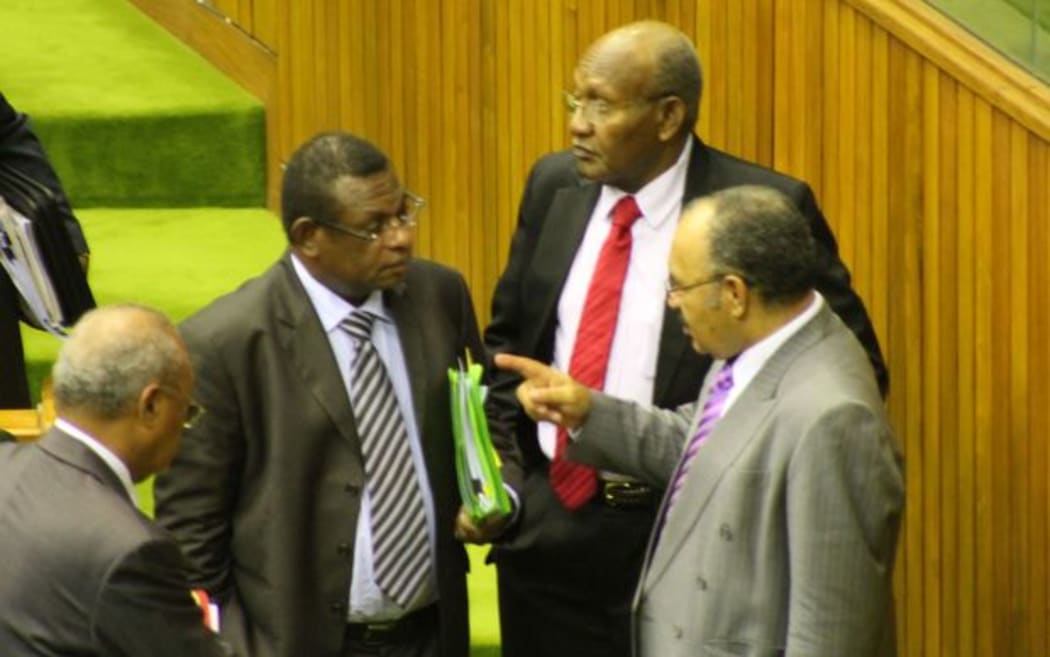
Papua New Guinea Treasurer Patrick Pruaitch (clutching folders) listens to Prime Minister Peter O'Neill (pointing finger) in parliament. Photo: RNZI
The mid-year outlook released this week from the PNG Treasury was another glimpse of the real state of a national economy that had been grossly mismanaged, according to Paul Flanagan, an Australian economist with a long interest in PNG's economy.
According to him, the government had already implemented spending cuts in certain sectors, but would need to do more.
"So those expenditure cuts that have already been put in place are more severe than those imposed on Greece," he explained.
"So you don't want to hit expenditure much harder than what's already occurred, although you may want to redirect where those expenditure cuts are occurring. More cuts towards the public service, less cuts towards education and health."
Mr Abel wouldn't be drawn yet on whether there would be more cuts to the public service, but said there would be some challenging times ahead.
"It is my intention over the next few days and leading into the first full session of parliament to come out with some pronouncements around what we are going to do," he said, adding that the economy was the first item on the government's priority list.
"But there's not going to be any knee-jerk reaction. There'll be a considered series of actions. I want to announce a one hundred-day plan, including some short term measures and also some medium and longer term measures."
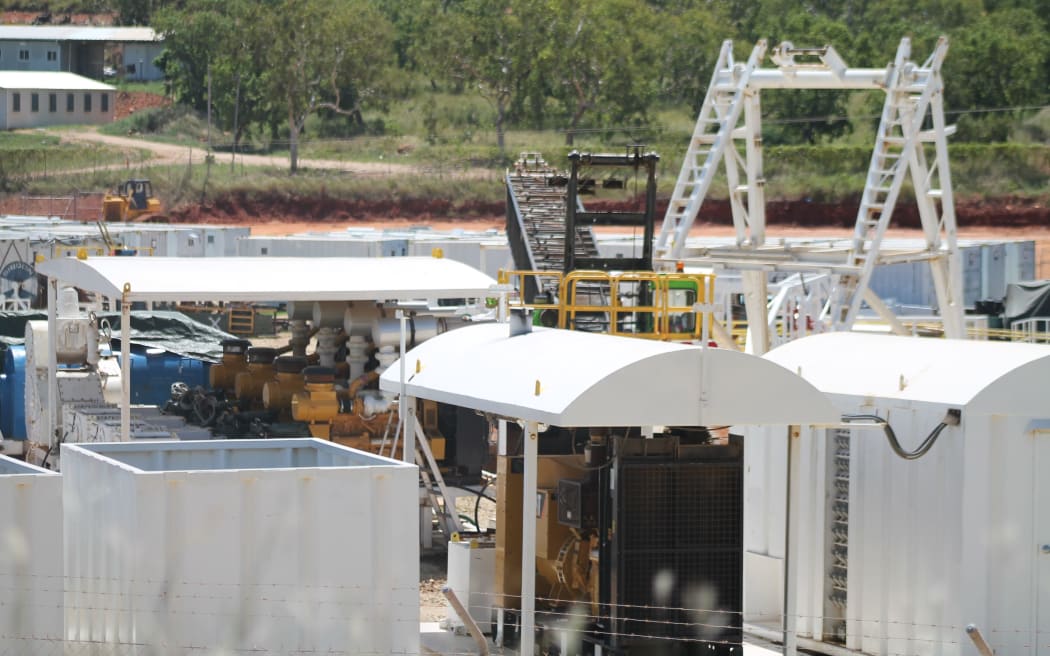
PNG's LNG gas project is the biggest commercial venture in the Pacific Islands region but has translated to few benefits for grassroots communities. Photo: RNZI / Johnny Blades
Long-term plan
There is some hope that Mr Abel will try and move PNG's government policy away from its reliance on the resource extractives industry.
"The country continues to struggle to sort of wean itself off the easy way out, so to speak, and that is relying on the extractives industry and the quick gains from just delivering these larger one-off projects," said the new treasurer.
There had been too much lip-service, he claimed, on investing in a more sustainable basis for PNG's economy, particularly in agriculture, tourism, fisheries and forestry.
"There's massive wealth that we have in terms of the basis for a much better longer-term economy. And there's things that we've embedded in some of our longer term (plans) being formerly the Minister of Planning.
"We want to move things, take some of the hard steps, like banning the export of round logs by 2020, for example; stopping the trans-shipment of tuna; bringing these resources onshore and adding value and creating jobs in Papua New Guinea; utilising our own gas resources to generate cheaper and more sustainable power in the country."
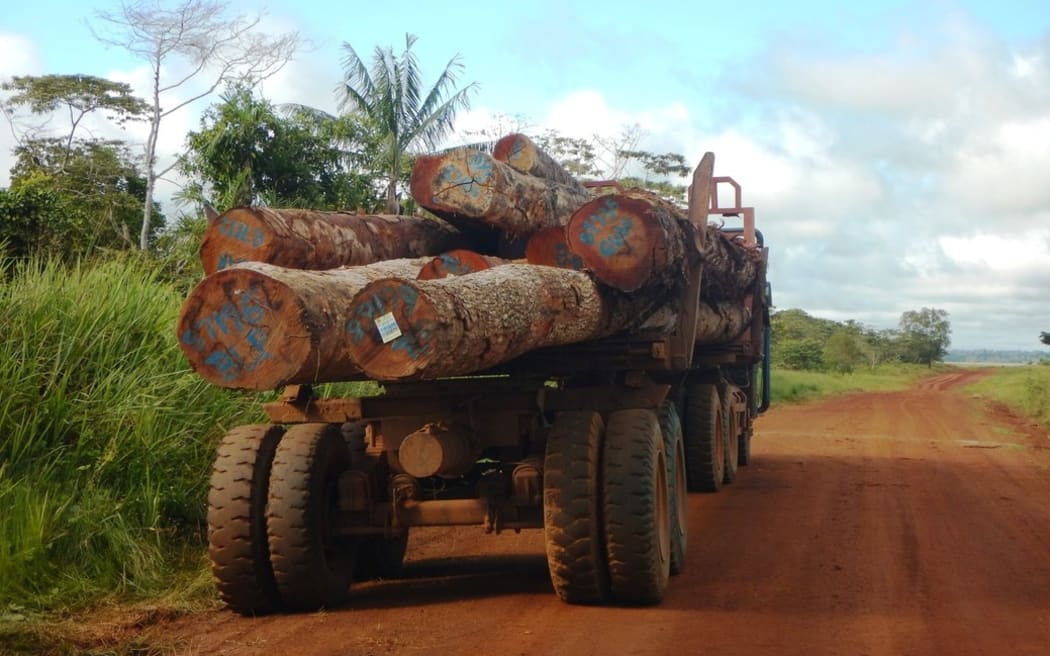
Logs cut from a Special Agricultural Business Lease in Turubu, Papua New Guinea, destined for export. Photo: Global Witness
Mr Abel said there were many obvious steps that the government could take to move to a more longer-term economic foundation, and to respond to the needs of PNG's citizens.
"The public has raised concerns, and I think as a responsible government we need to respond to those concerns. There are concerns around continued issues of corruption," he said, indicating the government was committed to introducing legislation to create an Independent Commission against Corruption.
